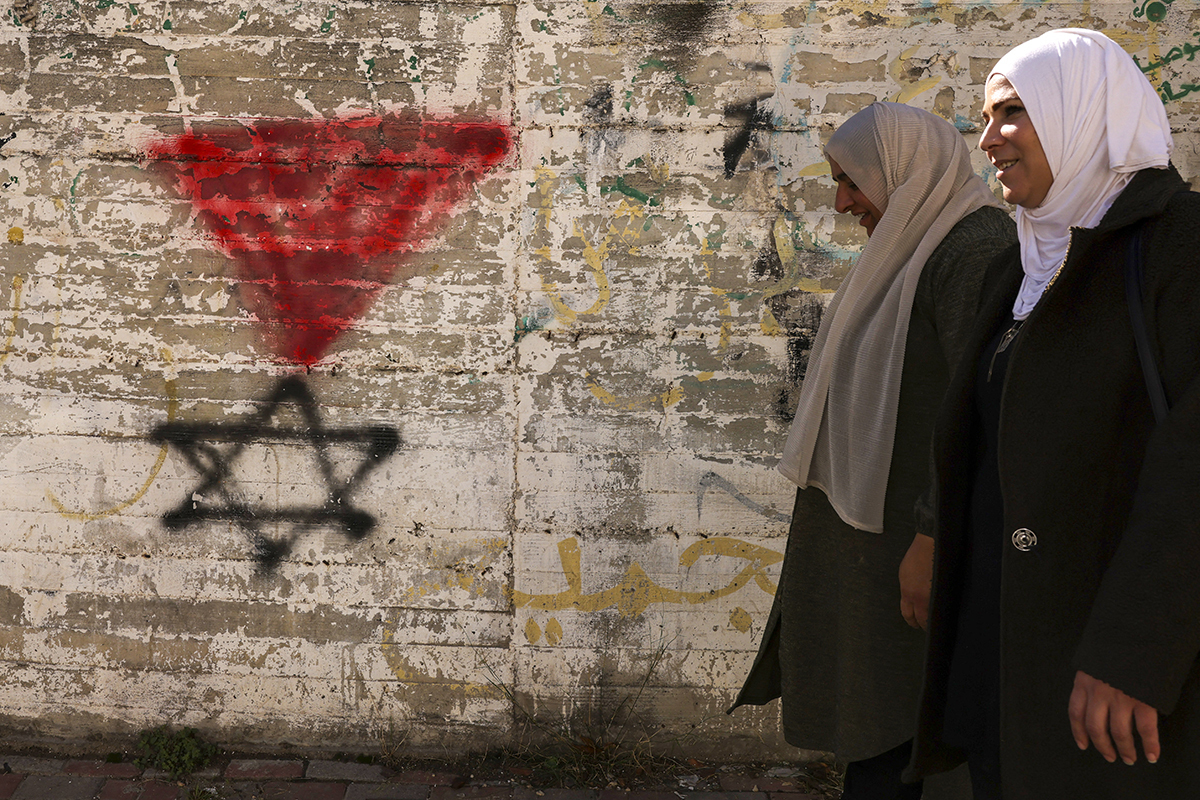
On this somber anniversary of the Hamas massacre of innocent Israeli and international civilians in Southern Israel’s Gaza Envelope, it’s worth reflecting on the strategic lessons of the last year.
Three significant strategic realities have now solidified for Israel: global antisemitism, American political policy, and the need to deal decisively and finally with Iran.
Antisemitism, the ancient nemesis to peace largely considered endangered in the West until last October 7, has once again reared its ugly head; “Historia magistra vitae,” history is indeed the “teacher of life.” As consistently demonstrated throughout history, the world will unfairly blame Israel no matter how justly they fight any defensive war.
The travesty of victim-blaming the Jews was first apparent early in the Gaza War. Israel did everything possible to avoid civilian casualties and aid the war-beleaguered Gazan population despite documented Gazan hate for the Jews and the continued holding and execution of civilian hostages seized on October 7.
Sadly, Jew hate isn’t confined to the Shia Middle East. Immediately after the October 7 attacks, before the Israel Defense Force (IDF) had done anything to respond, anti-Jew protests began in many Western countries, mainly couched in anti-occupation revisionist history. These have not ceased, nor have they been effectively deterred by Western governments or university administrations.
Before the year was out, on December 29, 2023, South Africa (demonstrating a stunning lack of self-awareness) filed a genocide case against Israel. Many nations have since joined that case. The rise of worldwide neo-Antisemitism shows no sign of slowing.
The world has sent a clear signal that unprovoked terrorist massacres, if directed at Jews, will be rewarded with support and tacit or open endorsement. Israel knows this and understands that the longer their response continues, the more they will face international headwinds.
This is one reason Israel is moving on Lebanon now and leads to the second political reality, American election-year politics. Vice President Harris sent a clear message of non-support to Netanyahu in late July by failing to attend his speech to Congress, instead attending a sorority event.
Netanyahu left for home, knowing what anyone paying attention cannot miss. A potential Harris administration will not support the Jewish nation during this existential crisis. The logical conclusion is that the IDF should act now rather than awaiting the outcome of the November elections.
If there was any doubt that the administration wouldn’t support Israel, it was solidified by Biden’s attempts to withhold 2,000-pound bombs from Israel, a position Harris supports. While Trump has reaffirmed his support for Israel, the Biden-Harris administration continues to bizarrely lecture Israel not to “escalate” even as rockets continue to be fired on Israeli civilians from all sides.
These Iranian proxies all target civilians as their primary tactic, which is expressly forbidden by the Geneva Conventions. At the same time, Israel has done everything in its power to protect civilians, even the many who hate them. Israel is fighting a justifiable and moral milchemet mitzvah in Gaza and Lebanon, avoiding noncombatant deaths whenever possible.
A case in point is the brilliant decapitation of Hezbollah leadership, the now-famous pager and radio attacks, and the successful targeting of Hassan Nasrallah and his associates. These terrorists were most likely killed using American BLU-109 penetrating bombs, ironically the same 2,000-pound bombs that Biden attempted to block.
According to some unverified accounts, the quick-tempo IDF tactical “OODA-loop” in Lebanon forced Ayatollah Khomeini to leave Tehran and go into hiding, which illustrates the final strategic observation, the need to deal with Iran.
The war against Iranian proxies is changing so fast that nobody but those in the IDF leadership circle knows precisely what’s going to happen next. This rapid tempo, combined with Iran’s largely unsuccessful mid-April attack on Israel, has Iran on edge.
Israel cannot and will not allow Iran to get the nuclear bomb, which Tehran is very close to doing. However, after the events of the past year, Israel clearly understands that neither the world nor a potential Harris administration will stop Iran’s nuclear ambitions.
Among other benefits of the BLU-109 attack in Beirut, Israel sent Iran a strong message that they could attack deep underground even though some Iranian nuclear complexes will require much more firepower than BLU-109 penetrating bombs.
After a year of fighting, Israel has been starkly reminded that no matter how much they fight their defensive wars following the Geneva Conventions, they will have fight alone. They have rightly concluded that regardless of how they conduct their wars, most of the world will not support them. Will the growing war expand into Iran and the larger Middle East?
The next three months are full of strategic risk on a scale the world has not seen in decades. If Trump wins, will Iran attack Israel before the inauguration? If Harris wins, will Israel attack Iran before the inauguration? These questions remain, but one thing is sure: America must stand with Israel.
Dr. David Murphy is the Dean of the School of Behavioral and Social Sciences at Colorado Christian University.







